Representing the interests and needs of constituents is the number one goal of legislators. Legislators strengthen their ability to help citizens by convening to support one another as well as learn best practices for state legislation. Several NBCSL members participate in other state legislative organizations that provide these opportunities. Here, we highlight NBCSL members in leadership in other national membership organizations.
 Senator Kelvin Atkinson (NV)
Senator Kelvin Atkinson (NV)
Elected National Vice Chair, Council of State Governments (CSG)
As a member of the Nevada Senate, Senator Atkinson has introduced legislation creating jobs, supporting increased funding for education, and implementing foreclosure measures to keep people in their homes. Senator Atkinson was elected National Vice Chair of The Council of State Governments (CSG), becoming the first African American in this position. CSG serves all three branches of state government as a region-based forum that fosters the exchange of insights and ideas to help state officials shape public policy.Read more:
- Nevada State Senator Kelvin Atkinson Elected National Vice Chairman of the Council of State Governments
- Senator Kelvin Atkinson: On the Issues
 Delegate Talmadge Branch (MD)
Delegate Talmadge Branch (MD)
Chair, National Caucus of Native American State Legislators (NCNASL)
Delegate Talmadge Branch has served in the Maryland Assembly for nearly 20 years. Representing Baltimore, Delegate Branch has been committed to providing energy assistance to low-income residents, pension benefits to teachers and state employees, and using state resources to help communities. Delegate Branch has been elected to serve a two-year term (2014 – 2016) as Chair of the National Caucus of Native American State Legislators (NCNASL). NCNASL works to broaden awareness of state-tribal issues among policymakers and state legislatures.Read more:
 Representative Laura Hall (AL)
Representative Laura Hall (AL)
National President, National Organization of Black Elected Legislative Women (N.O.B.E.L.)
Supporting equal pay, privacy protection, and access to healthcare are just a few of Representative Hall’s legislative priorities. Representative Hall is currently serving her two-year term as National President of the National Organization of Black Elected Legislative Women (NOBEL/Women). NOBEL/Women is a national organization created to serve as a global voice to address various issues affecting the lives of all women. Its membership boasts current and former Black women legislators and appointed officials.Read more:
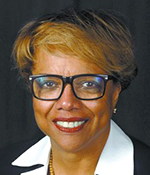 Representative Helen Miller (IA)
Representative Helen Miller (IA)
Chair, Women in Government (WIG)
Representative Helen Miller has been committed to economic development in her district and in the state of Iowa since she began her tenure in the legislature. She has particularly focused on economic development through the arts and authored legislation that resulted in a report on the impact of out-of-school arts programming. Representative Miller serves as Chair of Women in Government, which provides women legislators, state agency representatives, and the public with educational opportunities on public policy issues.Read more:
Although the specific functions of a Legislator may vary from state to state, the role may be generally defined as an elected official who crafts bills and votes them into law within the state legislative body. However, this by no means describes the full scope of a state legislator’s responsibility, and it certainly does not reflect the full expectations of constituents.
If you talk to the citizens whom state legislators represent, they will tell you that they expect their representatives and senators to visit them in their communities, to listen and talk with them about the issues that concern them, to create solutions to problems, and to represent their interests in the state governments. Essentially, they expect their state legislators to be leaders who are not only effective decision-makers, but compassionate negotiators whose ultimate goal is to serve the will of the people who voted for them.
The theme of this issue of The Legislator is leadership. Here, authors explore the roles of different types of leaders, outline lessons learned from their experiences, and provide insight for those who might follow in their footsteps. The articles cover a range of issues, including leading in the face of challenges (e.g., legislative gridlock, dismantled voting laws), leadership through bold and effective policymaking, assessing the progress of women leaders, understanding the fundamentals of good leadership, and gleaning knowledge from the experiences of past and present NBCSL leaders.
Now that mid-term elections are over, State Legislators have the challenging and unique opportunity to transform the trajectory of not only their state legislatures but this country by their actions and leadership. These words of advice from John Quincy Adams serve as a guide for those who aspire to great leadership: “If your actions inspire others to dream more, learn more, do more, and become more, you are a leader.”
The act of policymaking can be tedious, illuminating, frustrating, and rewarding all at once. Over the past few years, we have seen where legislative activity in statehouses across the nation is many times colored by hyper-partisanship. Thankfully, there are still instances when legislators have crossed the aisles to work toward the goal of implementing laws for the good of everyone.
The most critical effect of any policy is its ability to influence the lives of future generations. In hindsight, many of us can identify specific legislation – some even implemented before we were born – that has influenced the current quality of our lives. Where we live, which school we can attend, whom we marry, how we make a living, and many other aspects of our lives have all been shaped by these policies.
Our young people represent what is possible, but their potential is determined in part by their current reality. In this issue of The Legislator, articles cover a range of topics related to the current status of American youth, including healthcare choices, voting trends, education, and professional opportunities. These articles outline how policymaking has the ability to determine how successful our youth will be as adults, and what the impacts will be both nationally and internationally.
Who our young people become, what they accomplish, and how they achieve their goals, are all factors that depend heavily on how we prepare them, and the world in which we live, for the future. As state legislators, let us remember the words of our 32nd President, Franklin D. Roosevelt, when he said “We cannot always build the future for our youth, but we can build our youth for the future.”
Let us strive to do both.
Education equality, criminal sentencing reform, and increasing opportunities for Black and Latino boys and young men are issues that many state legislatures and the federal government are debating daily. NBCSL and its members have been at the forefront of debate and action—developing and often leading the passage of legislative solutions to problems confronting their constituents. Here, we recognize legislators who have made a difference in their states and share solutions for others to adopt.
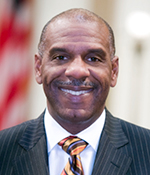 Assembly Member Steve Bradford (CA)
Assembly Member Steve Bradford (CA)
Chairs the Select Committee on the Status of Boys and Men of Color
In early 2013, Assembly Member Bradford was named Chair of the Assembly Select Committee on the Status of Boys and Men of Color. The Select Committee is a bipartisan panel of legislators from throughout California tasked with finding facts and making recommendations to address various issues faced by young men in the state, particularly Black and Latino boys.
In February 2014, Assembly Member Bradford accepted an invitation from the White House to attend President Obama’s announcement of “My Brother’s Keeper,” his initiative to invest in the lives of boys and men of color. The program closely mirrors the work that Assembly Member Bradford’s Select Committee has done to help young Latino and Black men become successful while eliminating injustices that pose a threat to their success.
 Representative Eric Pettigrew (WA)
Representative Eric Pettigrew (WA)
Introduced Achievement Gap Oversight and Advisory Committee Legislation
Washington State Representative Eric Pettigrew introduced legislation to close the achievement gap for African American students in the public schools. The legislation would have created a state-wide Achievement Gap Advisory Committee to develop policies, guide expectations, and provide the resources to support implementation of its plan. If passed, the Committee would have four key goals to close the achievement gap to be completed over 15 years centered on teacher quality, which includes training; early learning from birth to five years old; 100% graduation rates; and post-secondary and job training.
 Representative Cherrish Pryor (IN)
Representative Cherrish Pryor (IN)
Passed legislation to create a dropout prevention fund in Indiana
Representative Pryor guided the passage of House Bill 1343, which created a dropout prevention fund to be administered by the Department of Education to provide money for school corporation programs that identify students who are at risk for dropping out of high school. It also provides funds for appropriate interventions for the students. The fund consists of gifts, donations, and bequests; appropriations from the Indiana General Assembly, including federal grants; and grants from private entities.
 Representative Linda Chesterfield (AR)
Representative Linda Chesterfield (AR)
Led Public Safety Improvement Act in 2011
Arkansas Representative Linda Chesterfield led lawmakers to pass The Public Safety Act in 2011, designed to reduce the number of non-violent offenders incarcerated statewide by lessening the sentences for certain low-level drug offenses.
Specific to the enforcement of marijuana infractions, the law amends cannabis penalties so that the possession of up to four ounces of pot is a criminal misdemeanor, punishable by up to 1 year in jail and a $1,000 fine. For first-time offenders, the court may defer further proceedings and place the defendant on probation for a period of not less than one year. Under the previous law, the possession of any amount of marijuana above one ounce was a felony offense punishable by between four and ten years imprisonment and a $25,000 fine.
Additionally, the new law reduces criminal penalties for the possession of small quantities of marijuana with the intent to deliver from a felony offense to a misdemeanor. It also reduces subsequent possession offenses from felonies to misdemeanors.
The term health disparities is defined as the gaps in the quality of health and health care across racial, ethnic, sexual orientation and socioeconomic groups. Addressing health disparities has been a long-standing public policy issue. African Americans, and other communities of color, have historically had less access to quality health care, poorer health outcomes, and high mortality rates for a myriad of reasons. Some include lack of health insurance coverage (due to cost, poor information, or misunderstanding), distrust of the medical profession, and cultural norms.
NBCSL believes that the vitality of our communities begins with their health. By focusing on preventative measures, screenings, and coordinated care (as called for under the Affordable Care Act) we can both combat health disparities and greatly improve the quality of life for all Americans. The following legislators share this focus and have made health a priority in their respective states and districts.
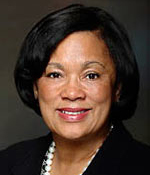 Senator Toni Nathaniel Harp (CT)
Senator Toni Nathaniel Harp (CT)
Serving her 11th consecutive term in the Connecticut Senate, Senator Toni Nathaniel Harp is currently the Deputy President Pro Tempore and Chair of the Appropriations Committee. Throughout her tenure, she has prioritized many initiatives including, managed care reform, insurance for uninsured children, raising the minimum wage, economic development for cities, and the safety of children in child care.
As part of her efforts to support the health of her constituents, Senator Harp introduced SB 1026 along with other Senate members to “improve health outcomes and ensure Medicaid recipients have timely access to an adequate network of health care providers in time for the expansion of Medicaid under the Affordable Care Act.” Outlined in part of the bill is a charge for the state government to establish the Council on Medical Assistance Program Oversight to study obstacles to achieving an adequate health care provider network for Medicaid recipients. The bill requires that this council recommend strategies to improve access to such providers, and health outcomes for such recipients across racial and ethnic lines, no later than January 1, 2014. The bill passed both chambers of the Legislature in May of 2013 and was signed into law in June of this year. Senator Eric D. Coleman (CT), an NBCSL member and Deputy President Pro Tempore, was another bill sponsor.
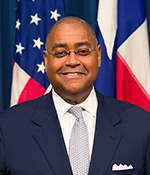 Senator Rodney Ellis (TX)
Senator Rodney Ellis (TX)
In 1990, Senator Rodney Ellis was elected to the Texas Senate, and during his tenure he has passed over 600 bills. He is also the founder of the Texas Legislative Internship Program (TLIP). Since TLIP’s inception, it has become the largest legislative internship program in the state. Senator Ellis has raised over $2 million in funding for the program, giving over 500 young people the opportunity to make a difference in Texas politics and public policy. Three former TLIP participants are currently members of the Texas House of Representatives. Senator Ellis serves as the Chair of the Open Government Legislative Committee and is a member of the State Affairs, Natural Resources, and Transportation Committees.
During the 2013 Legislative Session, Senator Ellis introduced SB 1693. An act “relating to the management of federal and state funds for the Texas Safe Routes to School (SRTS) program, and other programs directed toward the accommodation of pedestrians, bicyclists, persons with disabilities, children, senior citizens, users of public transportation, and persons of all ages and abilities,” this bill looks to promote physical activity through the expansion of sidewalks and other public thorough fares. Read into session on March 25, 2013, the bill is currently in the state Transportation Committee for review.
 Senator Mattie Hunter (IL)
Senator Mattie Hunter (IL)
Since 2003, Senator Mattie Hunter has served in the Illinois Senate. She is currently the Majority Caucus Whip and Chairperson of the Senate Human Services Committee, Vice-Chair of the Public Health Committee. She also serves on the Redistricting and Environment Committees. During her career, Senator Hunter has passed over 100 bills in the areas of breast cancer, childhood vaccines, environmental issues, and education.
During the 2013 Legislative Session, Senator Hunter introduced HB 1046, regarding medical aid eligibility for incarcerated individuals not already enrolled for health care assistance. The measure allows prisoners to apply for medical aid assistance any time while they are in prison instead of having to wait until 30 days before they are released. Senator Hunter introduced the bill because she felt quality medical care is what everyone deserves. “Whether in jail or not, you are a person and your health is valuable and a priority,” said Senator Hunter about the bill. Passed by both the House and Senate, HB 1046 was signed into law in August of 2013. Senator Hunter was the primary sponsor of this bill with NBCSL members Representatives Camille Lilly, Mary E. Flowers, and Derrick Smith being among the co-sponsors.
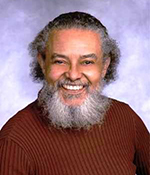 Representative Byron Rushing (MA)
Representative Byron Rushing (MA)
First elected to the House of Representatives in 1982, Representative Byron Rushing now serves as the Second Assistant Majority Leader and the Chair of the Massachusetts Black and Latino Legislative Caucus. During his service in the Legislature, he has chaired the committees on Counties, Local Affairs, Public Service, and Insurance. When he chaired the Committee on Insurance, he was the chief sponsor of health reform that sought to end pre-existing condition refusals by insurance companies, and he chaired numerous meetings of diverse stakeholders leading to the successful passage of non-group insurance reform law. Representative Rushing’s priorities are human and civil rights and liberties; local human, economic and housing development; environmental justice; and health care.
In the current 188th Legislative Session, Representative Rushing introduced bill H.2071 titled, “An act to eliminate racial and ethnic health disparities in the Commonwealth.” This legislation seeks to establish an office of health equity within the executive office of health and human services and an advisory health disparities council. As outlined in the legislation, the office “shall set goals for the reduction of disparities and prepare an annual plan for the commonwealth to eliminate disparities.” Furthermore, the office shall “facilitate development of interagency initiatives to address the social and economic determinants of health and key health disparities issues including, but not limited to, healthcare access and quality; housing availability and quality; transportation availability, location and cost.” In October of this year, the bill was referred to the Massachusetts House Ways and Means committee where it now remains with amendments pending.
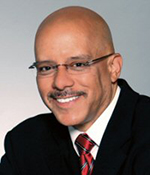 Senator Vincent Hughes (PA)
Senator Vincent Hughes (PA)
A member of the Pennsylvania State Senate since November 1994, Senator Vincent Hughes served as a member of the Pennsylvania House of Representatives from 1987 until he began his tenure in the Senate. While a member of the Pennsylvania House, Senator Hughes chaired the Pennsylvania Legislative Black Caucus from 1991 to 1994. Senator Hughes currently serves as Democratic Chair of the Appropriations Committee and member of the Intergovernmental Operations and Rules & Executive Nominations Committees.
During the 2013 Legislative Session, Senator Hughes introduced Senate Bill 5, the Community Based Health Care Program Act, which aims to create a community-based health care program in the Pennsylvania Department of Health. More specifically, the new program was established to “(1) expand and improve health care access and services, such as preventive care, chronic care and disease management, prenatal, obstetric, postpartum and newborn care, dental treatment, behavioral health and pharmacy services; (2) reduce unnecessary utilization of hospital emergency services by providing an effective alternative health care delivery system; and (3) encourage collaborative relationships among community-based health care clinics, hospitals and other health care providers.” Now known as Pennsylvania Act No. 10, this legislation became law on May 21, 2013.This is the time of the year when most of us take time to reflect on past activities and make plans for new ones. For many of us, this process involves pledging to improve our health. We resolve to eat better, exercise more, and live an overall more balanced life. Taking steps to improve our health, however, should not just be done around the holidays. It should be our focus year-round.
The Patient Protection and Affordable Care Act (ACA) promises to help all Americans make their health an annual priority by increasing access to health care and providing insurance coverage to over 32 million uninsured. Enrollment started this past October and implementation begins in 2014. Despite challenges that have emerged, the ACA remains our best domestic policy weapon to combat poor health outcomes and health disparities in our communities.
Throughout this issue of The Legislator, you will read various articles that highlight the ACA, its various provisions, and what to expect as it is implemented in states across the nation. Topics covered include potential next steps for states not expanding Medicaid, policies and programs to expect in the 2014 Legislative Sessions, and updates on the law from the Obama Administration. We also discuss the impact of tele-health in underserved communities, changes to Supplemental Nutrition Assistance Program (SNAP), and innovations to address sickle cell and other blood disorders. Finally, in observation of World AIDS month, public policies to eliminate HIV/AIDS in the African-American community are also suggested.
Seasons change and years go by, but the commitment to our overall health and well-being should remain the same. State lawmakers share this charge and must continuously look for new ways to advance legislation that truly improves the health of our communities.
Managing Editor
Over the past few decades, scientists, policymakers, business leaders, and the public, have debated about the effects of human activity on the earth’s climate. Of course, at ground zero of the climate change discussion are issues related to energy, transportation, and the environment, which are all the focus of hotly debated policies on local, state, and national levels.
Despite the polarization caused by some of these conversations, many agree that something needs to be done about the resulting environmental conditions, particularly the ones that affect the poor and communities of color. Consequently, it is up to all of us to collaborate, develop, and implement equitable and sustainable solutions to our current environmental concerns.
In this issue of The Legislator, articles explore best practices, innovative policies, and developing trends in fields such as the automobile industry, green jobs, and transportation infrastructure. They also delve into the experiences of individuals and communities where ineffective energy, transportation, and environmental policies have lead to poor economic and public health conditions. Nevertheless, despite the issues being deliberated, it is clear that people across the nation are using these challenges to create opportunities for progress and are having success doing so.
Therefore, the question at hand is not whether change is happening – because it is – but how, by how much, and when. Understanding that state legislators are at the helm of this movement, now is the time to heed the counsel of Dr. Martin Luther King, Jr.:
“We are now faced with the fact that tomorrow is today. We are confronted with the fierce urgency of now. In this unfolding conundrum of life and history, there "is" such a thing as being too late. This is no time for apathy or complacency. This is a time for vigorous and positive action.”
Be inspired to Act
The Editorial Team
Energy, transportation, and environment policies affect our everyday lives, and legislation to promote renewable energy, safer transportation, and a sustainable local environment is being considered in statehouses across the nation. While these policies are vital to the current state of our communities, they also have lasting effects for years to come. Here, we recognize those NBCSL members who see the importance and timeliness of these policies. They have brought several issues to the forefront, successfully passing legislation to improve our overall health and ensure a viable future for the coming generations.

Assemblymember Mila Jasey (NJ)
Assemblymember Mila Jasey was first elected to the New Jersey Legislature in 2007 and is now in her third term in office. She serves as Vice Chair of the Housing and Community Development committee and sits on the Education and Higher Education committees. Before taking office, Assemblymember Jasey was a member of the South Orange/Maplewood Board of Education. While on the board, she served as president for two years. In early 2012, Assemblymember Jasey authored legislation to prohibit the new construction of buildings on tainted soil. The act specifically required contracts, building plans, and bid proposal documents to include budget line items and specific instructions to test and remove (if needed) contaminated soil before building construction started. This legislation passed the House and the Senate and is now state law.
Senator Shawn-Michael Malone (USVI)
Senator Shawn-Michael Malone of the U.S. Virgin Islands was first elected in 2002. He is currently the Senate President of the 30th Legislature. He is Vice-Chair to the Committee on Culture, Historic Preservation, Youth, and Recreation. He also sits on the Committee of Rules and Judiciary and the Committee on Economic Development, Agriculture, and Planning. In 2013, Senator Malone proposed a bill to amend existing code authorizing solar thermal energy systems. The amendment, which passed and was enacted, permitted the development of utility-scale generation solar facilities in all zoning districts. This allows for broader installation and use of photovoltaic and solar thermal energy systems, and helps toward meeting USVI’s goal to reduce fossil fuel usage by 60% by 2025.
Senator Kent Williams (SC)
Senator Kent Williams has served South Carolina since 2005. He is active on several legislative committees, including Agriculture and Natural Resources; Finance; Fish, Game, and Forestry; and Commerce and Industry. Senator Williams was also appointed by Governor Carroll Campbell to the South Carolina State Agricultural Commission (created in 1978 primarily to oversee the administration of the South Carolina Agricultural Commodities Marketing Act). With membership on the committee for Fish, Game, and Forestry, it is no surprise that in 2011 Williams authored a bill to prohibit individuals or corporations from displaying “wild caught” or “captive-bred” dolphins and whales. Criminal penalties for this display were introduced through this legislation as well. The bill was successfully passed by both chambers and signed by the governor in May of 2011.
Senator Earline Rogers (IN)
Senator Earline Rogers was first elected to the Indiana State Senate in 1990. Prior to serving in the Senate, she served in the Indiana House of Representatives for eight years. Senator Rogers is a ranking Democrat of the Senate Education and Career Development committee and the Appropriations committee. Further, she sits on the Senate Homeland Security, Transportation, and Veterans’ Affairs committees. Dedicated to transportation and child safety, Senator Rogers authored SB 421 to “require school bus drivers to instruct passengers once a semester on proper seatbelt fastening in buses already equipped with seatbelts and to conduct evacuation drills at least once a semester.” The bill also required the Indiana School Bus committee to meet regularly to discuss bus driver conduct. Senator Rogers’ bill was signed by the governor in May 2013.

